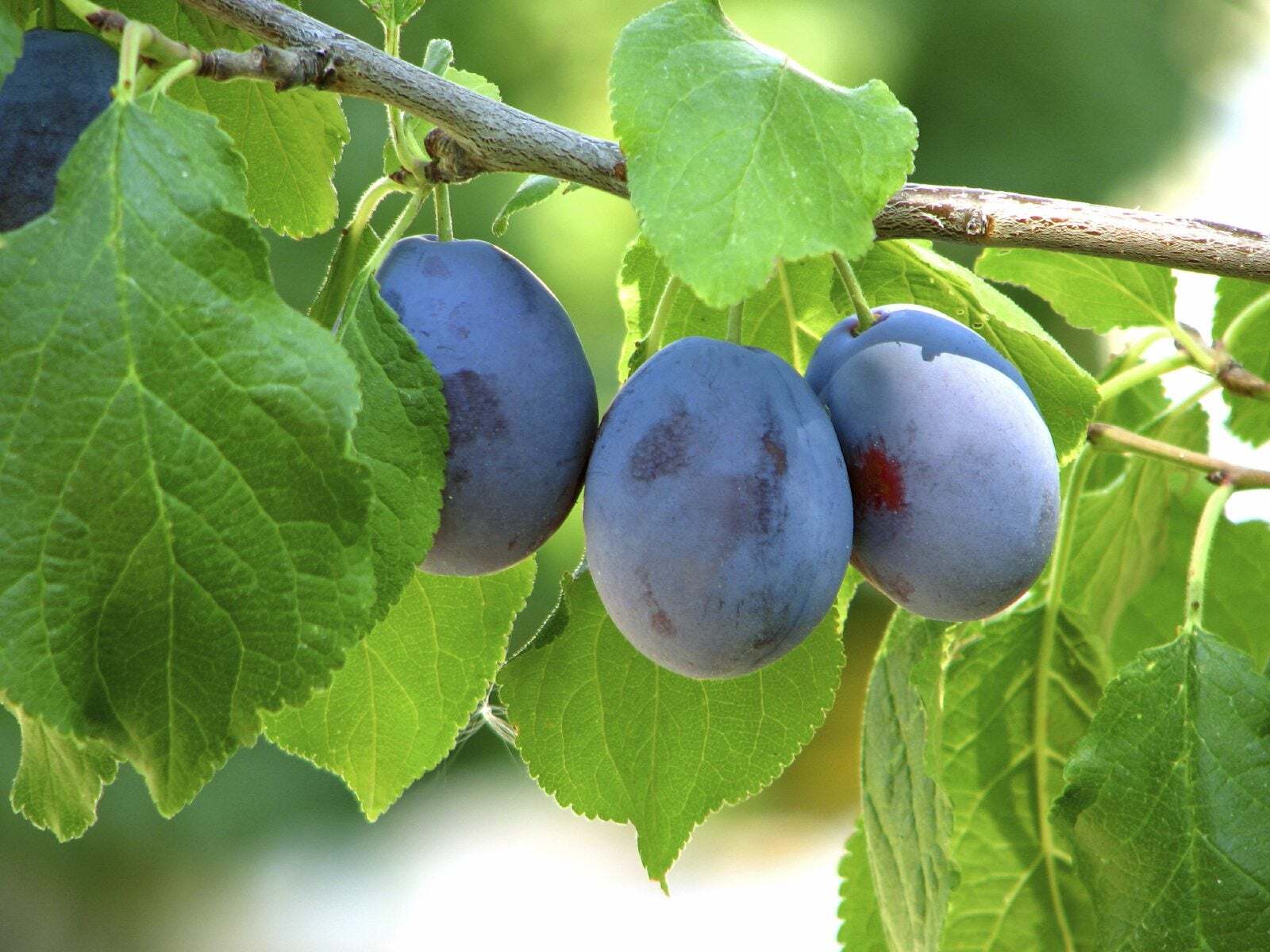
Damson plums are small, dark fruits that pack a punch in both flavor and history. Originating from ancient times, these plums have been cherished for their unique taste and versatility. But what makes them so special? Damson plums are not just delicious; they are also rich in nutrients and have been used in various culinary traditions across the globe. From jams and jellies to savory dishes, their tartness adds a distinctive touch. Curious about their benefits, uses, and interesting tidbits? Here are 20 facts about Damson plums that will make you appreciate this little fruit even more.
Key Takeaways:
- Damsons are small, tart fruits related to plums, rich in vitamins and antioxidants. They're perfect for jams, pies, and even homemade liqueurs, offering both culinary delight and health benefits.
- Growing damsons is rewarding and easy. They thrive in various climates, are self-fertile, and can be harvested in late summer. Their tart flavor adds a unique twist to many dishes, making them a versatile and delicious addition to any garden.
What is a Damson?
Damsons are small, dark purple fruits related to plums. They have a tart flavor, making them perfect for cooking and preserving. Let's dive into some fascinating facts about these unique fruits.
-
Origin: Damsons are believed to have originated in Damascus, Syria, which is why they are sometimes called "Damascene plums."
-
Historical Significance: The Romans introduced damsons to Britain, where they have been cultivated for centuries.
-
Appearance: Damsons are small, oval-shaped fruits with smooth, dark purple skin and a greenish-yellow flesh.
-
Taste: They have a tart, slightly astringent flavor, making them ideal for jams, jellies, and sauces.
-
Nutritional Value: Damsons are rich in vitamins A and C, dietary fiber, and antioxidants.
Growing Damsons
Growing damsons can be a rewarding experience for gardeners. They are hardy trees that can thrive in various climates.
-
Climate: Damson trees are well-suited to temperate climates and can withstand cold winters.
-
Soil: They prefer well-drained, loamy soil but can adapt to different soil types.
-
Pollination: Most damson varieties are self-fertile, meaning they do not require another tree for pollination.
-
Harvesting: Damsons are typically harvested in late summer to early autumn when they are fully ripe.
-
Pruning: Regular pruning helps maintain the tree's shape and encourages healthy fruit production.
Culinary Uses of Damsons
Damsons are versatile fruits that can be used in various culinary applications. Their tart flavor adds a unique twist to many dishes.
-
Jams and Jellies: Damsons are commonly used to make delicious jams and jellies due to their high pectin content.
-
Pies and Tarts: Their tartness pairs well with sweet pastry, making them perfect for pies and tarts.
-
Sauces: Damson sauce is a popular accompaniment for meats, especially game and pork.
-
Liqueurs: Damson gin and damson vodka are popular homemade liqueurs with a rich, fruity flavor.
-
Preserves: Damsons can be preserved in sugar syrup or dried for later use.
Health Benefits of Damsons
In addition to their culinary uses, damsons offer several health benefits due to their nutritional content.
-
Antioxidants: Damsons are rich in antioxidants, which help protect the body from free radicals and reduce inflammation.
-
Digestive Health: The high fiber content in damsons aids digestion and helps prevent constipation.
-
Immune Support: Vitamins A and C in damsons boost the immune system and promote healthy skin.
-
Weight Management: Low in calories and high in fiber, damsons can help with weight management by promoting a feeling of fullness.
-
Heart Health: The antioxidants and fiber in damsons contribute to heart health by reducing cholesterol levels and improving blood circulation.
Final Thoughts on Damson Fruit
Damson fruit, with its rich history and unique flavor, offers more than just a tasty treat. Packed with vitamins, minerals, and antioxidants, these small plums can boost your health in various ways. From improving digestion to supporting heart health, damsons are a powerhouse of nutrients. They’ve been a staple in traditional recipes and continue to inspire modern culinary creations. Whether you enjoy them fresh, in jams, or baked goods, incorporating damsons into your diet can be both delicious and beneficial. So next time you see these little purple gems, remember their impressive benefits and give them a try. Embrace the goodness of damson fruit and let it add a burst of flavor and health to your meals.
Frequently Asked Questions
Was this page helpful?
Our commitment to delivering trustworthy and engaging content is at the heart of what we do. Each fact on our site is contributed by real users like you, bringing a wealth of diverse insights and information. To ensure the highest standards of accuracy and reliability, our dedicated editors meticulously review each submission. This process guarantees that the facts we share are not only fascinating but also credible. Trust in our commitment to quality and authenticity as you explore and learn with us.


